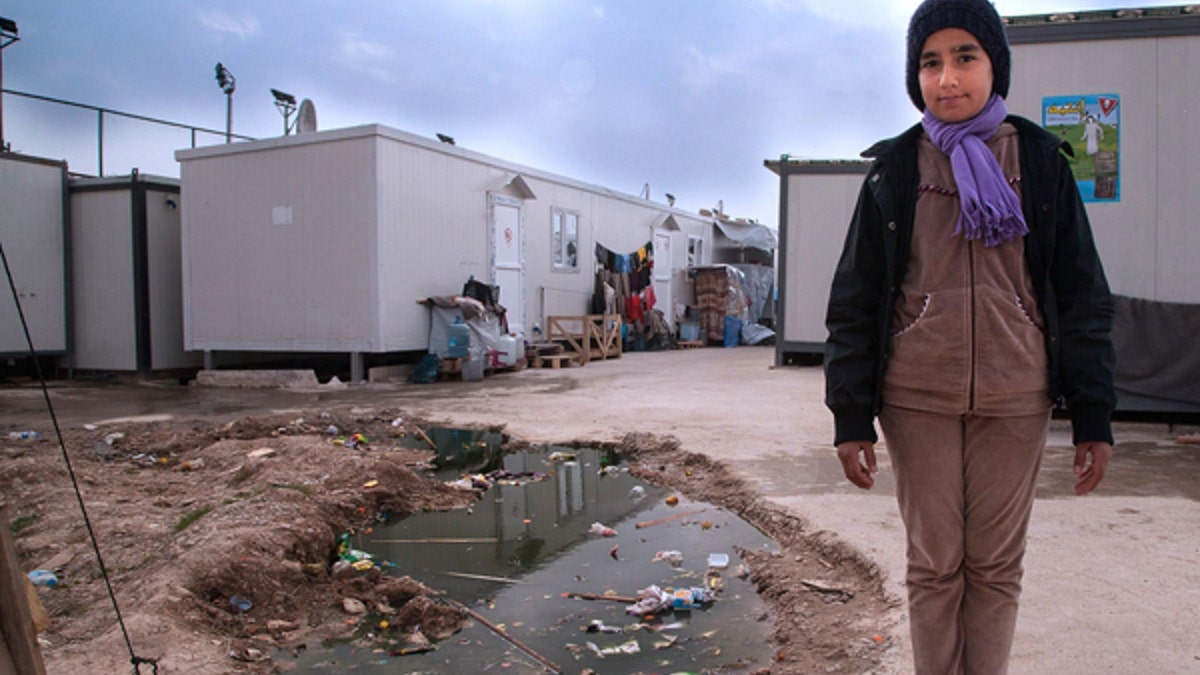
A new report claims that the Yazidi and Assyrian Christian refugees have been blocked from returning to their villages across the Nineveh Plain in northern Iraq by the Kurdish Regional Government. (Jeff Gardner)
U.S. representatives of Iraq's long-persecuted Assyrian Christian minority are blasting claims by the country's Kurdish Regional Government that its refusal to let them return home aims only to protect them. But the KRG, which denies the accusation, cites unexploded roadside bombs left by now-expelled Islamic State forces as a key reason for -- temporarily -- barring the Assyrian Christians from their homeland.
The clash between the KRG and the American representatives of the Assyrians erupted earlier this week, signaling strains in what had been a solid anti-ISIS alliance of Kurds and Assyrian Christians. The other large Christian group in Iraq, known as Chaldeans, enjoys harmonious relations with the KRG.
According to a report from The Investigative Project on Terrorism, the KRG has blocked both the Assyrians and the Yazidis from returning to their villages across a broad expanse of northern Iraq known as the Nineveh Plain.
“It’s really been a case of adding insult to injury to insult again,” Jeff Gardiner, director of operations for advocacy and relief foundation Restore Nineveh Now, said to Fox News. “The Kurdish authorities did not protect the people of the Nineveh Plain. In a way, this was enabled by the Kurdish government. They really set them [Yazidis and Assyrians] up for this catastrophic outcome.”
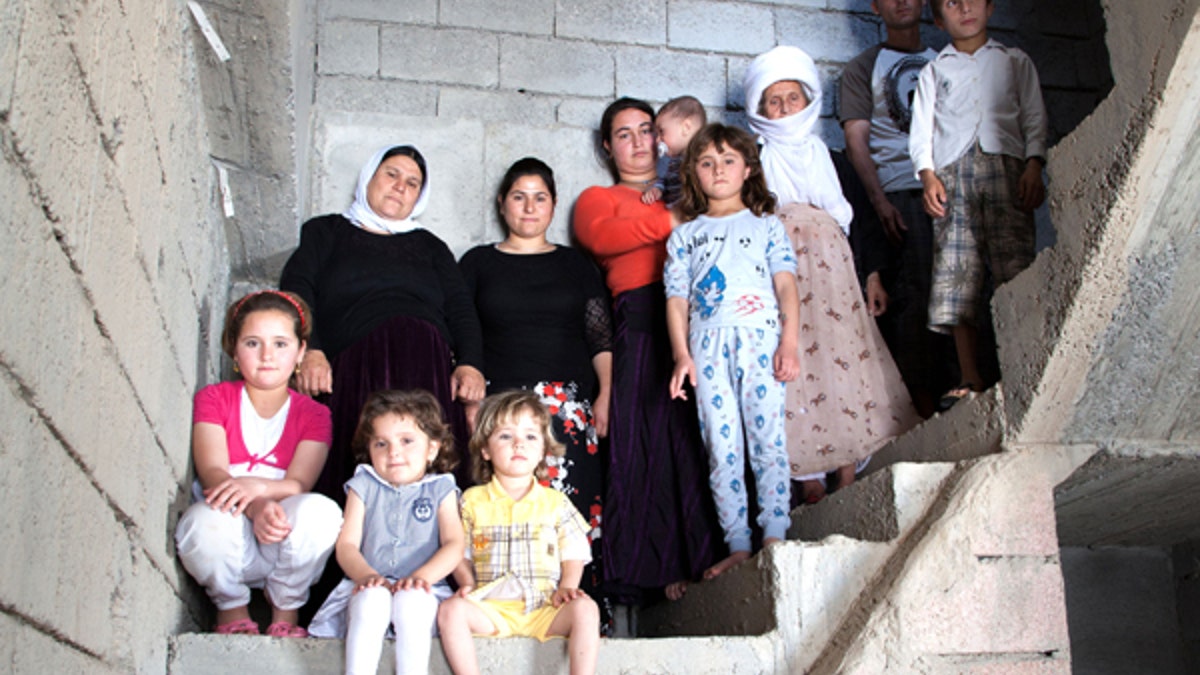
KRG officials have said that the region is still dangerous, leaving Yazidi and Assyrian families unable to return home. (Jeff Gardner)
An official with the KRG's representation office in Washington dismissed the claims of the report as the views of a disreputable group and said KRG fighters liberated land from ISIS control and did not engage in a "land grab." Also, the official said there is still a security risk throughout the region – one they are working diligently to eliminate.
“We urgently need assistance with mine and bomb clearance,” KRG representation in Washington told Fox News. “The scale of the problem in Sinjar and in most liberated areas is vast and beyond our capabilities alone. We would welcome any efforts among the Iraqi-Christian community to help us lobby for such assistance from the United States and other coalition partners.”
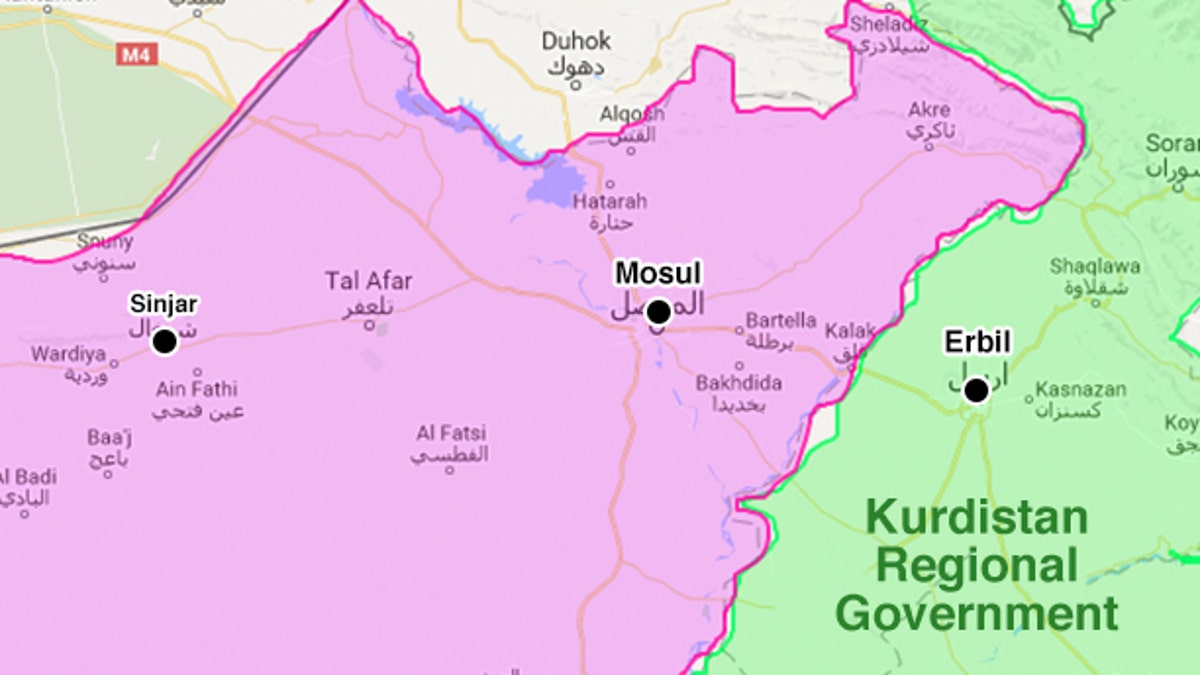
Further, the KRG said Tuesday it plans to rebuild the city of Sinjar, the largest Yazidi city, Turkish news site BasNews.com reported. Mahma Khalil of the KRG told the news agency that “good steps” for reconstructing the town have already been made.
Meanwhile, Gardiner, who has been in the region multiple times, calls claims that there is a security risk from unexploded roadside bombs false.
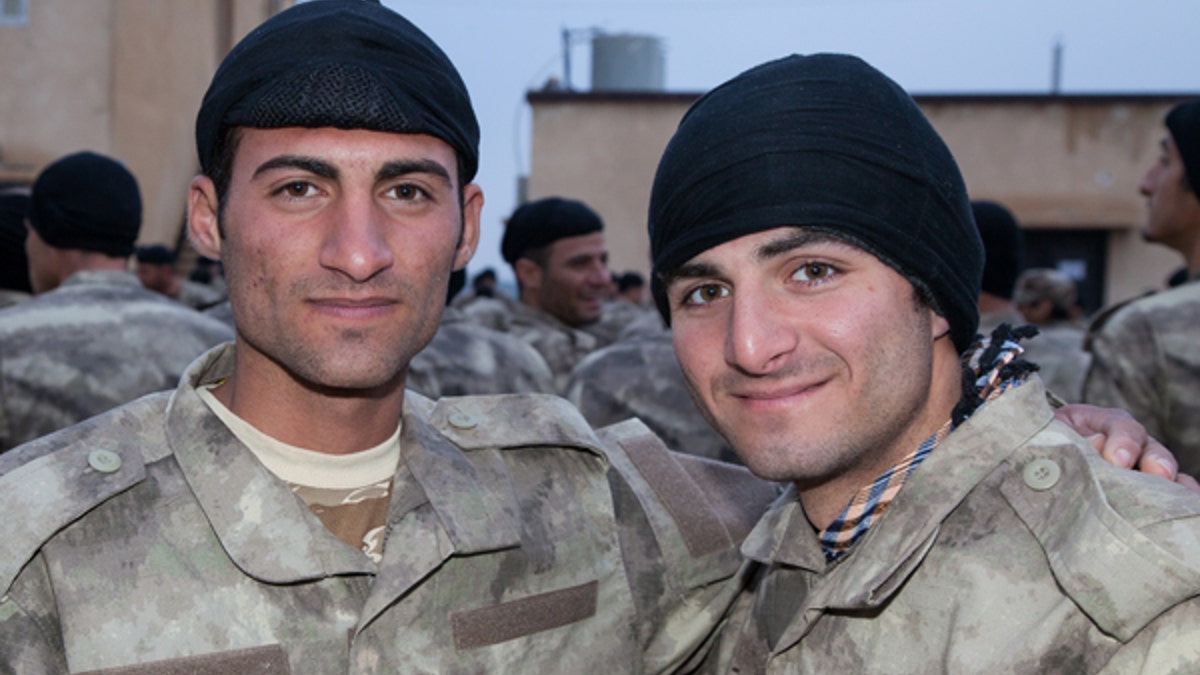
The report alleges that members of the Nineveh Protection Units, an Assyrian militia, have also been waylaid by the KRG.
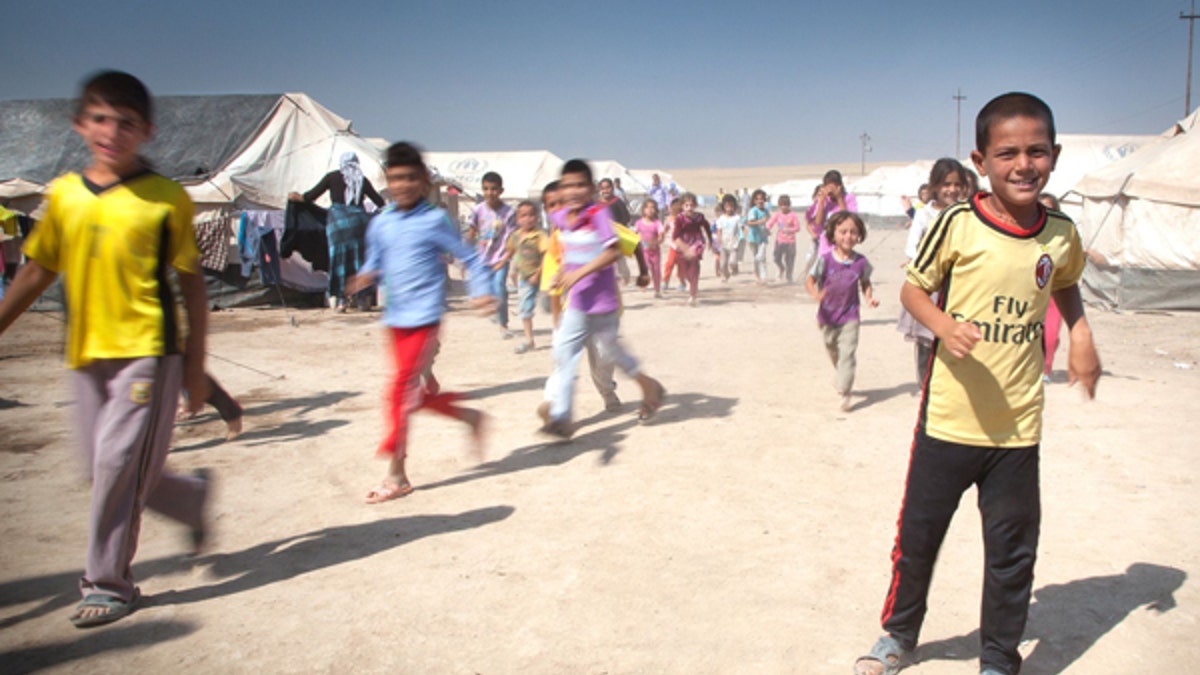
Many of the Yazidi and Assyrian familes have been at refugee camps near the Iraq-Turkish border. (Jeff Gardner)
“It’s simply not true that the place is still littered with IEDs,” he said. “The Assyrians’ own military, known as Nineveh Protection Units (NPU), assisted in clearing them out. Their movements are still being impeded by Kurdish forces. The Assyrians and Yazidis are not being allowed to leave the camps to even assess the damage of their homes and villages.”
The minorities also say the KRG is keeping NPU personnel restricted to refugee camps, according to the Investigative Project on Terrorism. In addition, the KRG vetoed a NPU request to increase its forces from 500 to 1,000.
Gardiner called the KRG’s actions a “land grab” aimed at securing access to oil and gas under the Nineveh Plain and boosting their claims to be an independent nation.
"For months we've been receiving numerous reports from Assyrian Christians and Yazidis that Kurdish forces are using the fog of war to seize land that rightfully belongs to victims of genocide. Each week those reports are increasing,” Robert Nicholson of The Philios Project said. “The Nineveh Plain has never been a Kurdish territory. It belongs to the Christians (Assyrians) and Yazidis who have been living there for thousands of years.”
KRG officials insist that they are not looking to make any sort of land grab and support the creation of a new state in the the Nineveh Plain.
"What happens to those areas has yet to be decided," a KRG official said in a statement to Fox News. "The Peshmerga will not withdraw from areas we consider to be Kurdistani areas. In other places, we will transfer control in an orderly fashion when there is a legitimate body to hand them over to, knowing that the people and property there will be protected. Yezidi and Christian groups have called for autonomous provinces or zones in Nineveh and Sinjar. We support their view and believe that the people of those areas should determine their governance."
